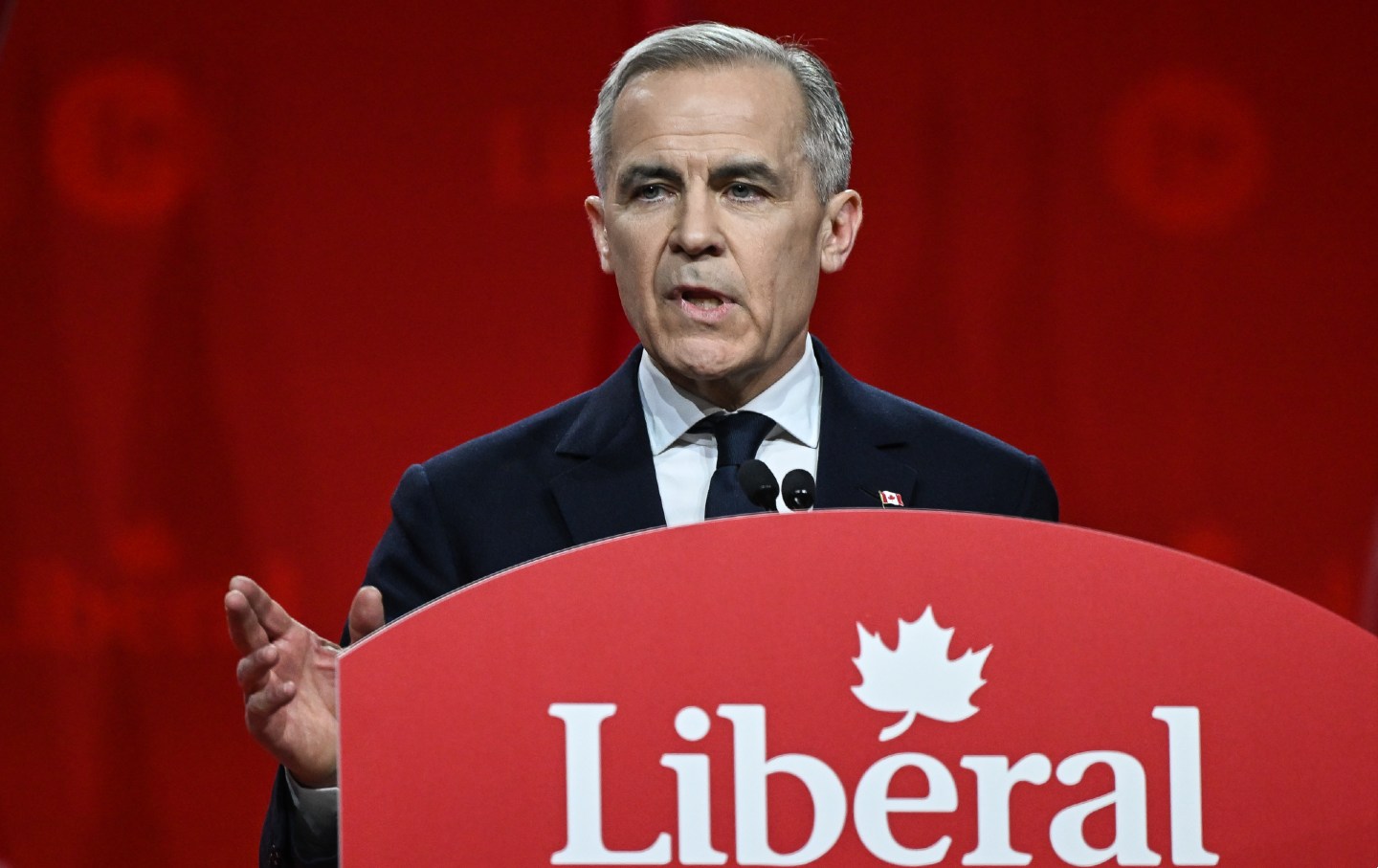Stop Sending American Bombs to Israel
Halting offensive arms transfers now would put the administration on a new path—and align Harris with the majority of Democrats who support conditions on weapons aid to Israel.

President Biden’s legacy is being written in Gaza’s rubble. Over the past year, his administration has sent billions of dollars in weapons aid to Israel, enabling a campaign that has triggered a humanitarian catastrophe, one that the International Court of Justice is investigating as a plausible case of genocide. At a minimum, suspending offensive arms transfers to Israel is necessary to realign the United States’ actions with its stated values. This is about more than legality—it’s about avoiding a moral stain that will linger long after the bombs stop falling. Lyndon Johnson’s Great Society was overshadowed by the Vietnam War; Biden’s domestic ambitions risk being eclipsed by his blank check for Israel’s war crimes. If he doesn’t take action, his presidency may be remembered not for “building back better” but for enabling a humanitarian disaster.
Even Ronald Reagan temporarily suspended F-16 deliveries after Israel’s 1981 bombing of Iraq’s Osirak reactor, questioning whether they were being used for self-defense purposes, as required by US law. George H.W. Bush used loan guarantees in the 1990s to pressure Israel into freezing settlement expansion. Both presidents understood that US influence doesn’t require unconditional support. Today, Biden faces the most extreme government in Israel’s history—one that openly discusses violating international law. He has the tools to remind the world that American support has limits and that American power can forge peace. But he hesitates as Gaza’s devastation mounts, even after the killing of Hamas’s leader, Yahya Sinwar, removes the last fig leaf of a strategic rationale for Israel’s war.
Biden’s reluctance undermines US laws, such as the Leahy Law and the Foreign Assistance Act, which prohibit weapons aid to countries engaged in human rights abuses. The message is unmistakable: The United States condemns Russia’s invasion of Ukraine while turning a blind eye to Israeli aggression. In the Global South, many see this double standard as a glaring example of Western hypocrisy.
This isn’t just about restoring US credibility; it’s about safeguarding the country’s strategic interests. Biden’s unwavering support for Israel’s actions in Gaza has undermined even America’s own stated goals, like a two-state solution and the Abraham Accords—objectives that many, myself included, view as unrealistic and deeply flawed. By halting offensive arms transfers, Biden can chart a new path: one that values human rights and international law while still supporting Israel’s legitimate security needs.
This call for a change in US policy has gained unprecedented support from seven major American labor unions and the NAACP—key Democratic stakeholders. Even Thomas Friedman has called for restricting weapons aid to Israel. When establishment figures start urging restraint, it has become clear that the status quo isn’t just unsustainable—it’s dangerous.
Kamala Harris faces a critical decision, too. She has a chance to distinguish herself by endorsing a policy shift that aligns with the 77 percent of Democrats who support placing conditions on weapons aid to Israel. This is her opportunity to become a voice for accountability and human rights, offering a vision that Biden has so far lacked.
Of course, challenging this status quo means confronting AIPAC, the powerful pro-Israel lobby that has long sought to block any constraints on weapons aid. But Biden wouldn’t be the first president to take on this challenge. Barack Obama faced down AIPAC during the negotiations for the Iran nuclear deal and succeeded. Like the NRA, AIPAC represents an extreme viewpoint that’s increasingly out of step with American public opinion. Standing up to it would signal that the administration is willing to prioritize America’s long-term interests over the demands of a rigid, out-of-touch lobby.
Biden supported the Iraq War—which has haunted US foreign policy for two decades. Today, he warns Israeli leaders not to make the same mistakes the US made after 9/11, including letting military force run unchecked. The lesson from the War on Terror is clear—indiscriminate force only breeds further violence—but Biden seems unwilling or unable to apply that wisdom when it matters most.
We need a ceasefire, the release of Israeli and Palestinian captives, and an end to decades of US-backed Israeli military rule over Palestinians. This moment is about defining who we are as a nation, and finding the courage to uphold the values we claim to champion. Biden’s legacy, Harris’s potential, and even averting a looming regional war are all on the line. History will judge whether they met this crisis with courage—or let it define them by their cowardice.
Support independent journalism that exposes oligarchs and profiteers
Donald Trump’s cruel and chaotic second term is just getting started. In his first month back in office, Trump and his lackey Elon Musk (or is it the other way around?) have proven that nothing is safe from sacrifice at the altar of unchecked power and riches.
Only robust independent journalism can cut through the noise and offer clear-eyed reporting and analysis based on principle and conscience. That’s what The Nation has done for 160 years and that’s what we’re doing now.
Our independent journalism doesn’t allow injustice to go unnoticed or unchallenged—nor will we abandon hope for a better world. Our writers, editors, and fact-checkers are working relentlessly to keep you informed and empowered when so much of the media fails to do so out of credulity, fear, or fealty.
The Nation has seen unprecedented times before. We draw strength and guidance from our history of principled progressive journalism in times of crisis, and we are committed to continuing this legacy today.
We’re aiming to raise $25,000 during our Spring Fundraising Campaign to ensure that we have the resources to expose the oligarchs and profiteers attempting to loot our republic. Stand for bold independent journalism and donate to support The Nation today.
Onward,
Katrina vanden Heuvel
Editorial Director and Publisher, The Nation








